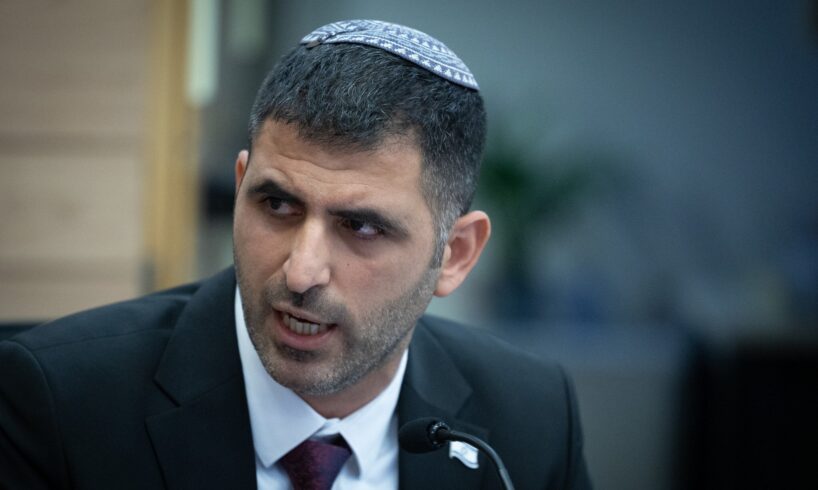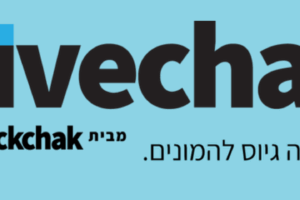
Communications Minister Shlomo Karhi threatened Wednesday to cut funding from Israel’s public broadcaster Kan if it airs a documentary depicting atrocities committed by the IDF during the 1948 War of Independence.
In a letter sent to the corporation’s CEO, the minister denounced the documentary “1948 — Remember, Remember Not,” claiming it promotes a “false and antisemitic narrative” about the war.
“Media reviews indicate that the film adopts and promotes a false and antisemitic narrative, accusing IDF soldiers of committing massacres and rapes during the War of Independence,” Karhi wrote to Kan CEO Golan Yochpaz.
The film, directed by Neta Shoshani, retells the events of the 1948 war through the voices of both Jews and Arabs, incorporating footage, journals and letters written at the time.
The minister threatened to cut Kan’s budget if it airs the film, but confessed in writing that he had not yet seen it and requested the corporation immediately send a copy to his office.
Get The Times of Israel’s Daily Edition
by email and never miss our top stories
By signing up, you agree to the terms
He sought to examine whether the movie violates a law barring state-funded bodies from financing activities that “deny Israel’s existence as a Jewish and democratic state” and “commemorate Independence Day as a day of mourning.”
According to Karhi, the film violates the law due to the fact that it includes quotes alleging atrocities committed by Israeli soldiers during the 1948 war, including rape, looting and the massacre of Palestinian civilians.
Director Neta Shoshani, whose documentary ‘1948 – Remember, Remember Not’ was denounced by Communications Minister Shlomo Karhi on September 3, 2025, speaks at the Akevot Institute on May 8, 2022. (Screenshot/Youtube)
Going beyond the legal provisions, Karhi derided the corporation’s supposed choice to “give a platform to false enemy propaganda, weaken the hands of our soldiers and instill courage in the enemy” during wartime.
“Please, spare Israeli citizens this time from the legal confrontations, order the removal of this disgraceful stain from the broadcast schedule, and apologize on behalf of the corporation to Israeli citizens for the mistake made with its funding,” he wrote.
But he added that even if the broadcaster were to renege on airing the film and issue an apology, he still plans to slash “up to three times the amount the corporation invested in the film.”
Defending its position, Kan responded that the documentary “is a historical film that presents testimonies about the war.”
“The award-winning film also includes complex perspectives, but the claim that the public broadcaster seeks, God forbid, to harm the IDF is unfounded and baseless,” the public broadcaster’s statement continued, as quoted by Ynet.
At the opening night of the 25th Docaviv film festival in Tel Aviv, May 11, 2023 (Courtesy)
Karhi has crusaded against the documentary ever since it premiered in Tel Aviv’s annual Docaviv Film Festival in 2023. He leveled similar threats against Kan’s former CEO Gil Omer at the time, but he, too, rebuffed the minister.
While Kan has refused Karhi’s demands not to air the film following its premiere, the controversy delayed the film’s release, and it was then further delayed due to Israel’s ongoing war against Hamas, according to Kan.
The dispute is part of Karhi’s broader campaign to dismantle the public broadcaster. For more than two years, he has advanced legislation to privatize Kan or shut it down entirely, including a bill stating that if no private buyer is found within two years, Kan will be shuttered and its intellectual property transferred to the government.
In June, the Ministerial Committee for Legislation voted to back a Karhi-proposed bill that would privatize Kan’s news division, in a move that the broadcaster said is “intended to terrorize the Kan news division and its staff and benefit those close to the government.”
Communications Minister Shlomo Karhi discusses his moves to sideline the Kan public broadcaster during a Knesset Economic Affairs Committee hearing on December 18, 2024. (Chaim Goldberg/Flash90)
Backers of Karhi’s efforts argue that the campaign against the state broadcaster serves to liberalize the media market and increase competition.
Israel has fallen 15 spots in Reporters Without Borders’ annual press freedom index since the government took power in late 2022. While launching heated attacks on many Israeli media outlets, the coalition has poured money into the pro-government Channel 14, nearly quadrupling its advertising spending there over the past two years, according to news website The 7th Eye, which covers the local media sector.
Is The Times of Israel important to you?
If so, we have a request.
Every day, even during war, our journalists keep you abreast of the most important developments that merit your attention. Millions of people rely on ToI for fast, fair and free coverage of Israel and the Jewish world.
We care about Israel – and we know you do too. So today, we have an ask: show your appreciation for our work by joining The Times of Israel Community, an exclusive group for readers like you who appreciate and financially support our work.
Yes, I’ll give
Yes, I’ll give
Already a member? Sign in to stop seeing this
You appreciate our journalism
You clearly find our careful reporting valuable, in a time when facts are often distorted and news coverage often lacks context.
Your support is essential to continue our work. We want to continue delivering the professional journalism you value, even as the demands on our newsroom have grown dramatically since October 7.
So today, please consider joining our reader support group, The Times of Israel Community. For as little as $6 a month you’ll become our partners while enjoying The Times of Israel AD-FREE, as well as accessing exclusive content available only to Times of Israel Community members.
Thank you,
David Horovitz, Founding Editor of The Times of Israel
Join Our Community
Join Our Community
Already a member? Sign in to stop seeing this





